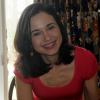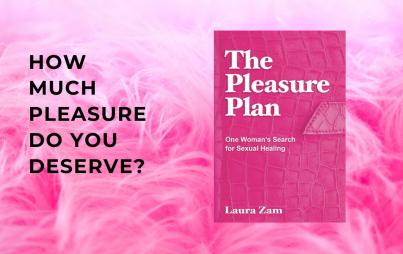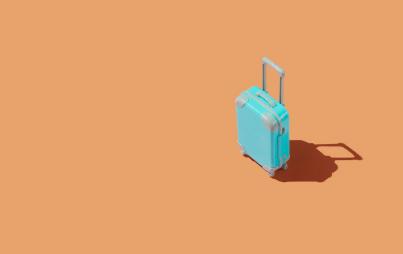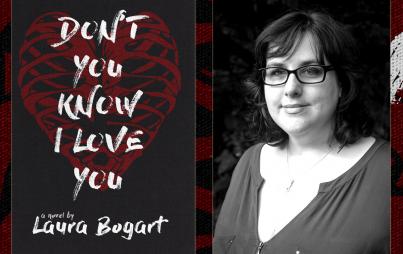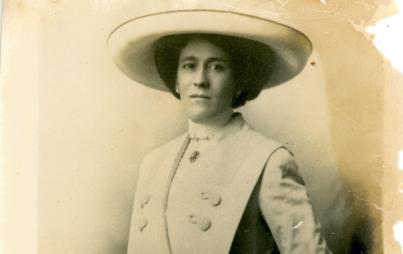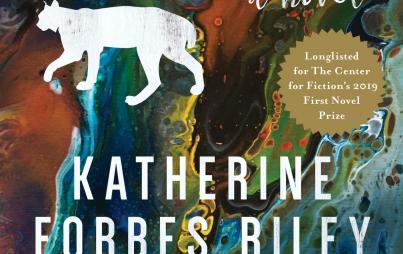
It's not often that the job descriptions "wargame simulator" and "social worker" describe the same person, but young adult author Jeanne Ryan succeeded in both fields before turning to writing. Perhaps most surprisingly, those seemingly disparate pursuits continue to inform Ryan's current profession. Her gripping stories have struck a chord with both readers and movie executives—her first novel, Nerve, which explores a high-stakes game of online truth or dare, is currently being adapted for the big screen by Lionsgate Films and will star Emma Roberts and Dave Franco. Ryan's next thriller, Charisma, weaves medical intrigue together with social justice by telling the story of Aislyn, a teen suffering from crippling shyness until taking Charisma, a gene therapy drug being covertly tested by a rogue scientist. Aislyn and other teens become outgoing and vivacious, but Charisma has a dark underbelly, and participants start dying.
Ryan spoke with me from her home in Washington State about how she made the leap from wargame simulation to writing for young adults, her obsessive attention to detail, gene therapy, and why being an introvert in a society of loudmouths has its advantages.
Let's talk about life before becoming a novelist, which included creating wargames. How did you make the drastic move from wargame simulation to writing for young adults?
It was a long and twisty journey. I was doing war gaming as a defense contractor for five years or so, and it got to the point where I realized that wargame simulation was not aligned with my passion. Basically, you're using programs to calculate kill rates and things like that, and it just no longer fit with who I was. I was living in Germany at the time, and I decided I would move to the States. I ended up in Seattle, and my goal was to move into human services, because that felt right for me. I ended up working for a large foundation that provided out-of-home care, foster care, placement, and kinship adoptions. I worked there for five years, and then I decided to get a PhD so that I could understand the theory behind what I was doing. I was working the technical end, and I ended up being their director of technical services. Since I wanted to know more about the social end, I went to the University of Washington's school of social work, got my PhD, and became a researcher.
That's a real career change. It takes a certain personality to do wargame simulations, doesn't it?
I liked working with computers. I saw it as a challenge, like a puzzle to complete. But ultimately, I wanted to do something in human services, and I wanted to apply my technical acumen in a different environment. In HR, I still used my technical and programming skills, but with a very different goal in mind. Soon enough, I got into social work. Then I had kids and that changed everything! I went back to my love of writing. Now I get to study anything I want, which is wonderful.
Could you talk about that second leap from social work and HR to staying at home and writing? After you had kids, was it difficult to balance work and home?
Right after I had my first child, I went right back to doing research for work, and it was all-consuming. I really just wanted to spend time with my son. I was an older mom. It wasn't like I was having kids at 25; I was older and maybe I didn't have as much energy as a younger parent. Regardless, I really wanted to savor that time. So I stayed home with him, but within months was going absolutely insane, and I thought I wasn't cut out to be home full-time. I turned to writing, first as a therapy and stress reliever, to do something that was all my own. Sometimes it's almost like kids can control your thoughts; you can't just sit still and think your own thoughts, because you've got these little people who need attention. I would get out of the house for an hour and drive to a pretty lookout and sit and journal in my car. It was my own time. My husband was very supportive of that hour alone. That time just ignited something, and I remembered how much I had enjoyed writing years earlier. It also fueled a bug in my ear. I would set little goals for myself —"Maybe I could write a story. Maybe I could start a novel. Maybe I could finish a novel. Maybe I could get an agent." It took about eight years before the first book came out, and a new career was born. The best thing about this career is that I can do everything that I love —I can do research, I can study. I don't do any computer stuff anymore, but I can look into anything I want, and raise my kids, and have this thing that's my own.
Did all that journaling lead to Nerve, your first published book, and soon-to-be motion picture?
At first, journaling was a way to get the day out. Then slowly I started writing little essays; I sent a couple to my local newspaper and when they were published, I liked the feel of that.
It's validating to see your name in print. At first, I had no idea what I was doing. My first was a very poorly written novel, but it inspired me to take classes to learn how to write novels the right way, I hope. And it was the fifth novel I wrote that got sold. From writing in the car until Nerve came out took eight years.
Do you have any say in what happens in the film version of Nerve?
Lionsgate purchased the rights. It's still a little surreal, but it's going to be a fun date night when that comes out. I have no say in what they do. Lionsgate was nice enough to let me see the script a year ago. Whenever there is a press announcement they mention the book, and they've been very generous about that. I did get to speak to the producer a few times. I have no say in casting, or anything like that. And that's fine. Catherine Ryan Hyde wrote in Pay it Forward, "Never confuse your book with their movie." I had my chance and now they're doing their creative thing and I think that's great. 
In Charisma, you mention Flowers for Algernon a lot—the benevolent Dr. Gordon is an homage to Charlie Gordon, for example. I remember reading that book in high school and its exploration of happiness, intellect, and emotion resonated with me. Why did you chose to promote that work? What role did it have in writing Charisma?
It's one of those books that just stuck with me. I don't know how many thousands of books I read—I read a lot —but that one stuck. It was the exhilaration of changing your whole life, and living the life of your dreams. Then, to live a totally different life, and witness the horror of losing it, knowing it's going to happen. Flowers for Algernon takes readers' emotions up and down, and I just found it really powerful. While Aislyn's trajectory in Charisma isn't the same as Charlie's, I wanted readers to think about who Charlie is before the experiments. Was the real Charlie the smart version of himself or the original version? And by extension, I hope readers will ask those questions of the characters in Charisma. I find that an interesting question—Who is the real you? Is someone who takes psychotropic drugs the real you? Does it even matter?
Had you just read Flowers for Algernon before writing Charisma?
Actually, I had a different idea in mind—I was going to write a thriller on terrorism. I was really fascinated by Wikileaks and what kind of information can go public. I thought I was going to write about Wikileaks and it was going to take place in Indonesia because we were going to visit my husband's relatives there. Then, as I was preparing for travel, I went onto the State Department's website, and there was a warning about a rabies outbreak in Bali. I became obsessed with rabies, because I worried how I would help my kids avoid all these stray dogs. One night I was talking to my husband about how to turn the fear of this virus into something good. What if there was this really lethal virus that also gave people something great? There was this push and pull of having it both ways, and I came up with the idea for a virus that gave people the ultimate "X" factor, but could also kill them. When I was researching viruses I came across articles about gene therapy, which is delivered via viruses, and one thing led to another, and I came up with the premise.
What kind of viruses are being used to deliver gene therapies?
In one case, HIV is being used in some gene therapies. As it turns out, all the things that make it so hard to cure make it a great vector. The scientists call it lentivirus now; I think they do that so people don't freak out, when they learn that HIV is being used to cure them. The deadly part is removed. Now scientists are testing using the virus on aggressive cancers in mice. I don't know if it's been tested on humans, but research is being done on the HIV-disabled virus to deliver gene therapy. That gave me chills, because HIV/AIDS has been such a global horror, and I was amazed at how it could actually be used for something good.
Is there actual controversy surrounding gene therapy? In Charisma there is quite a bit.
Yes, there were some large failures with gene therapy in the 1990s—scientists used a virus that stimulated an immune response that was so strong it killed the patient. In another therapy it caused cancer. So gene therapy went on the backburner for awhile. Scientists have been developing other viruses since then and the technology has gotten better and they've made a lot of progress. Now there is a cure for a type of congenital blindness where a proper form of the genes is injected directly into the retina. With one treatment, people with this type of blindness could see. There's a book called Forever Fix about a little boy who had this disorder—he was missing one gene, and this blindness is caused by a single type of gene mutation. There's a whole bunch of research going on right now about how to cure different types of cancer, and it's really exciting. Some scientists are saying it's the second coming of gene therapy.
Why did you focus on shyness as a personality disorder in your book?
Maybe because it's what I would have wanted as a teen. I was extremely shy, not to the point Aislyn is in the book, but it would have been very tempting if I could have had something that would make me more effervescent. I think an outgoing personality is something our society values highly—although I just read the book Silence: The Power of Quiet in a World Full of Noise, and now I really embrace my introversion. A lot of times we're made to feel guilty if we're on the introverted side of the scale. Still, I wondered what would I want for myself as a teenager. What would be a great side effect of a horrible virus?
What are you working on now?
I'm working on different drafts of different ideas. I don't know which one I'm going to give my heart to for the next couple of years. I'm not a book-a-year writer. I started Charisma in 2012. I'm not that fast. We all have our own momentum.

